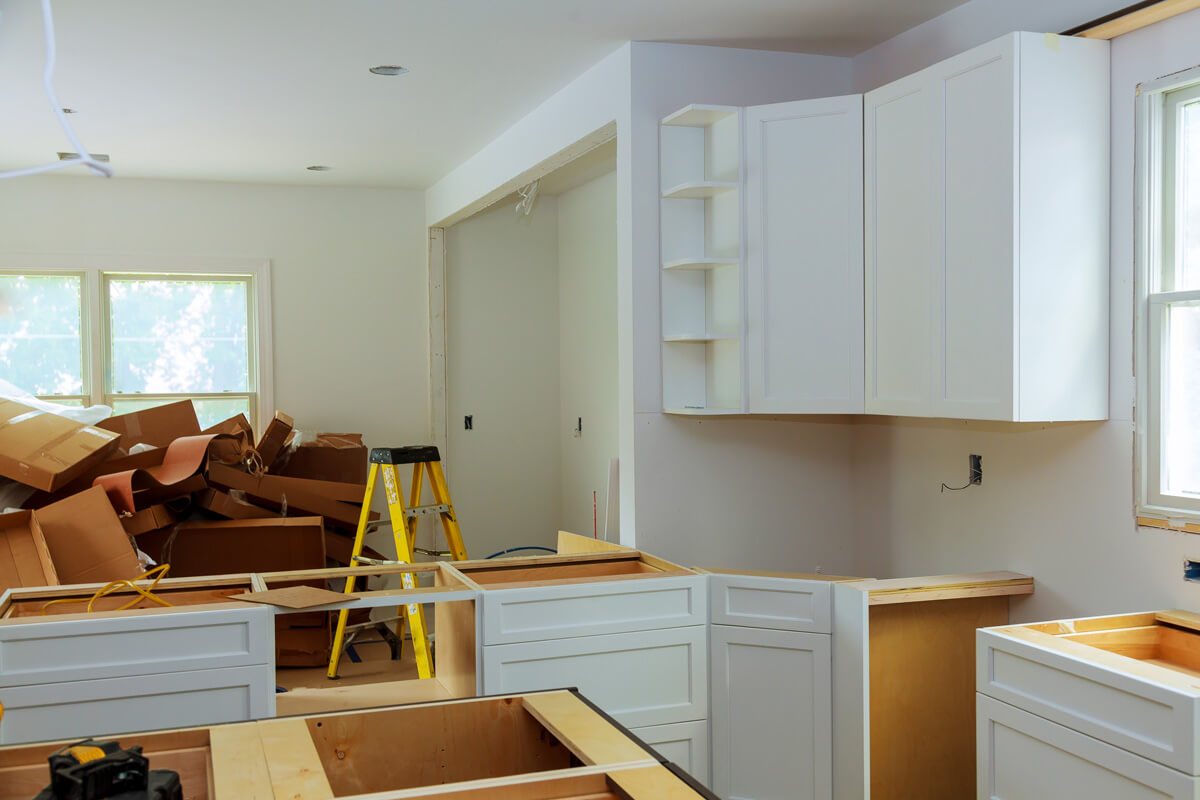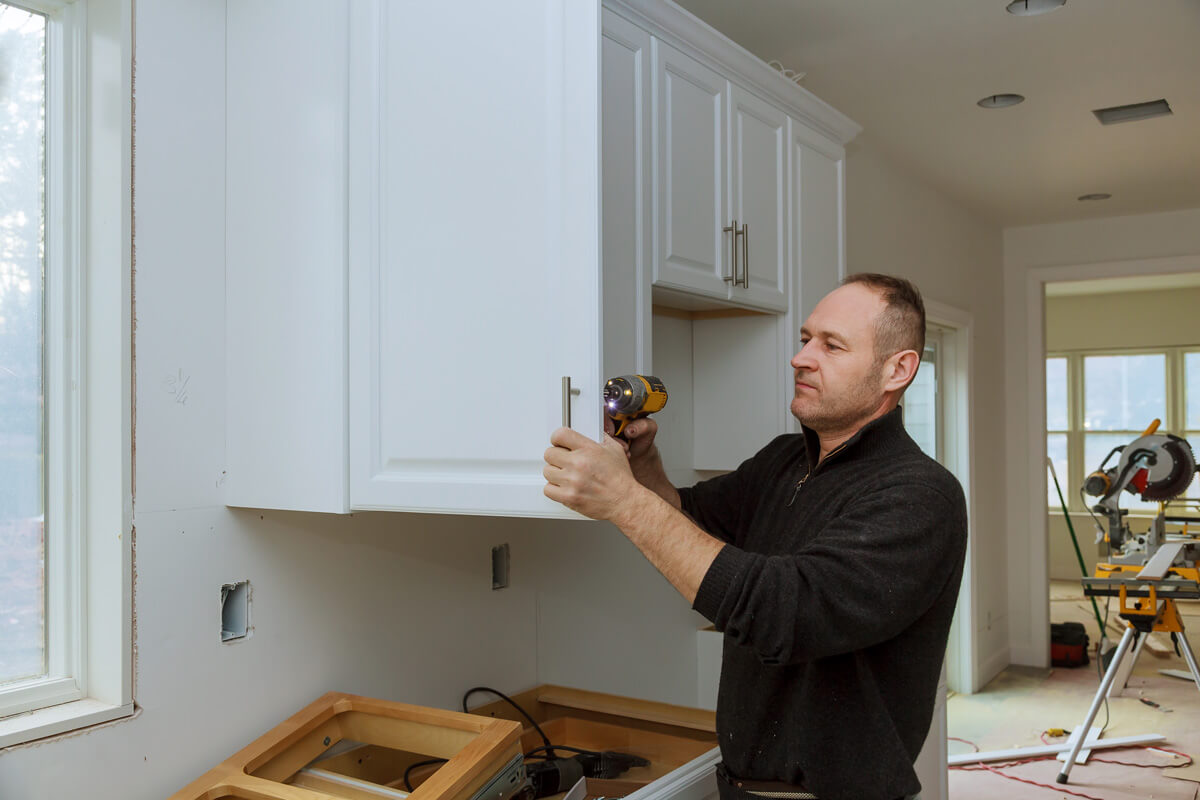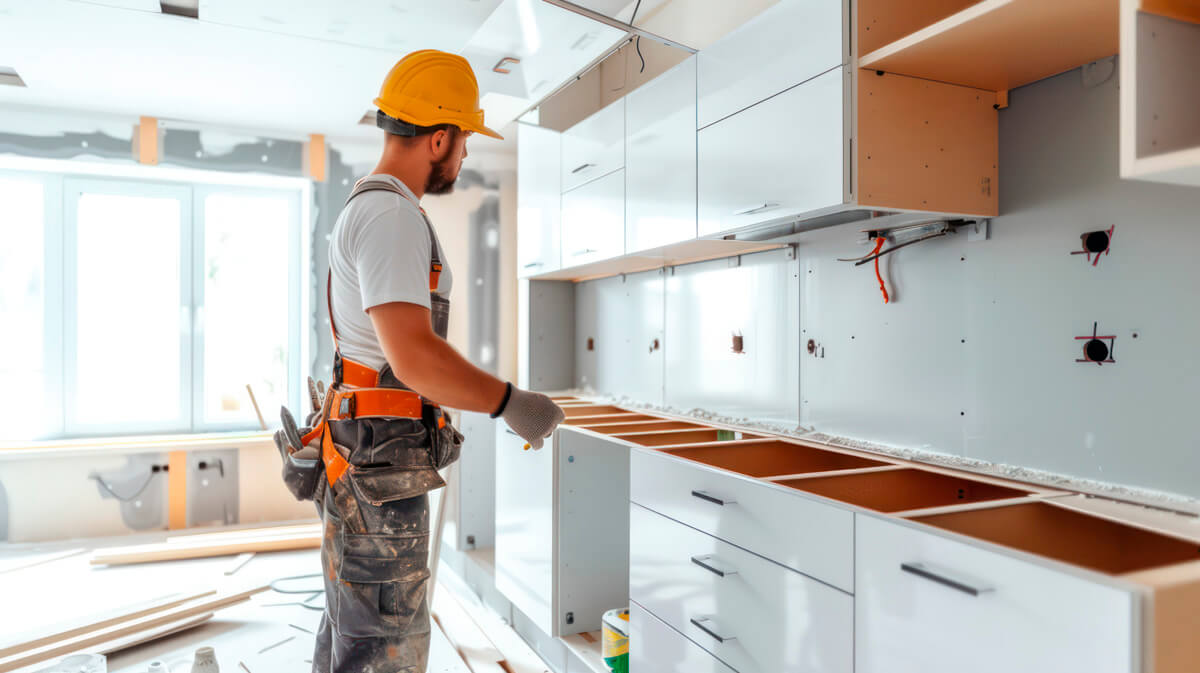Published: September 25th, 2025
If you are planning a kitchen renovation, you should know the specifics and stages of the process.
One important detail is obtaining permits, which are required for certain types of work. By working with Artos in Charlotte, you free yourself from these concerns. In this article, we’ll explain which types of activities require permit documentation.
When Kitchen Remodel Permits Are Not Required
The rules are regulated by the Department of Building and Inspections. According to them, modifications and minor repair work do not require licensing if the cost does not exceed $6,000 within any six-month period. This limit is based on the fair market price of materials and contractor services, regardless of whether the homeowner hires professionals or does the work independently.
Permits are not required for the following activities:
- installing kitchen cabinets;
- remodeling a chimney;
- installing panels or other finishing materials on existing ceilings, floors, or walls;
- connecting electrical outlets and pipes to utility systems such as plumbing or wiring;
- partial repairs or incomplete replacement of worn-out or broken elements of the structure — such as faucets, cabinet doors, sinks, pendant lights, or countertops.

When Kitchen Renovation Permits Are Required
A full remodel of the space requires comprehensive inspections and permits. Regardless of the project’s scale, both primary and additional construction work must be licensed if it affects structural or load-bearing elements, ventilation systems, evacuation routes, fire safety measures, or lighting.
Plumbing Permit
Replacing a broken dishwasher or an old faucet can be done without permits. However, plumbing work that changes the kitchen’s layout or utility systems requires licensing. Examples include installing a new dishwasher, relocating the kitchen sink, upgrading plumbing located behind walls, or installing copper or polypropylene water pipes instead of galvanized ones. A permit costs about $300.
Electrical Permit
You must contact the relevant government authority if you need to install, extend, or modify electrical wiring or connect appliances. Such electrical work requires licensing, unlike minor tasks such as replacing old light fixtures, switches, or outlets. These outlets must be grounded (GFI), and it is prohibited to install them in ungrounded boxes. Electrical work must be performed by a qualified professional. A permit typically costs around $300.
Building Permit
If you need permits for electrical and plumbing work, construction also requires licensing. The license should be obtained at the start of a large-scale kitchen remodel if it involves removing old plumbing, tile, laminate, or other flooring, or tearing down walls.
Interior updates require a permit in the form of an on-site inspection — known as an STFI. If the project is straightforward, the permit can often be issued the same day you apply. You can find the list of fees and other details at the Department of Planning and Development. The approximate cost of a permit is $800, depending on the total expenses.

Inspections
The permit fee includes inspections carried out at different stages. To save time and effort and avoid extra hassle, it’s important to hire a reliable licensed contractor who is familiar with current building codes. If the project qualifies for an STFI permit, an inspector will be assigned. This inspector will monitor compliance with requirements throughout the process.
When you hire a general contractor, be prepared for the following steps:
- Preliminary inspection. This is the first stage, conducted after plumbing and electrical wiring are installed but before the walls are closed up. The contractor will call in building, plumbing, and electrical specialists, who will confirm that the kitchen meets the standards.
- Main inspection. Carried out once the work is completed. If any requirements are violated and corrections are needed, you’ll be given a checklist. After completing these corrections, you’ll meet the inspector again for follow-up monitoring.
- Final approval. This is issued by the building inspector, but first the general contractor will examine the space and verify the proper installation of insulation and other key elements.

Avoid Being Tricked by Unlicensed Contractors
For cosmetic renovations or minor interior updates, you can turn to a handyman. This can be a good solution if that person has a contractor’s license and proper qualifications. But if such a handyman acts as a general contractor and offers to perform work without permits — supposedly to save time and money — you risk being fined $500 per day.
Some dishonest specialists also suggest obtaining permits retroactively. This is far more problematic and expensive than getting a license before the work begins. If inspectors check the remodeled kitchen and find code violations, they will require you to fix the issues. This process can be labor-intensive and result in significant additional costs.
How Much Does It Cost?
The price of obtaining a permit for a remodel, an addition, or other work is determined by the total cost of the project. An application must be submitted along with an immediate payment of 75% of the fee. The remaining balance is paid upon approval. For reports related to engineering and geological surveys or drainage system inspections, payment is charged by the hour. Rates can be obtained from the Department of Building.
How Long Does It Take?
The timeline for issuing permits depends on the specific approval requested, the number and extent of changes, and the project’s complexity. The initial review of standard applications takes 2–3 weeks. Complex plans take longer to approve — up to 8 weeks. For small projects, permits are issued quickly, sometimes on the same day if the STFI format applies.

Hire a Reliable Contractor and Obtain Permits
If you approach everything thoughtfully and correctly, you can stay within the rules, avoid fines, and prevent liability. Not all property owners understand construction details, which is why some turn to unlicensed private handymen who ignore or bypass regulations.
But if you find a reliable renovation contractor or work with a trusted design and construction company, they will account for important details and handle the permitting process. While partnering with a reputable and established company may cost more than hiring a small contractor, it reduces risks and pays off in the long run.
Tip! To cut down on the cost of a kitchen remodel, you can combine it with renovating another room, such as a basement or bathroom. In that case, inspectors will review multiple areas at the same time.
If you are planning a remodel, contact Artos. Our specialists will help you carry out a project of any complexity and obtain the necessary permits without unnecessary expenses, issues, or delays.
